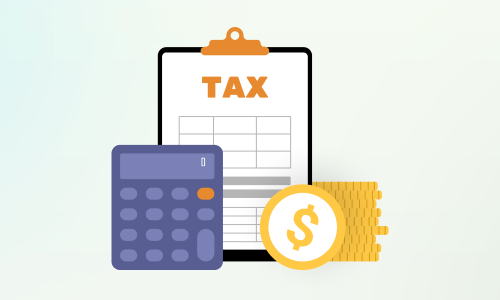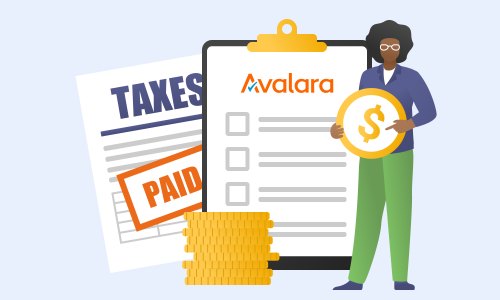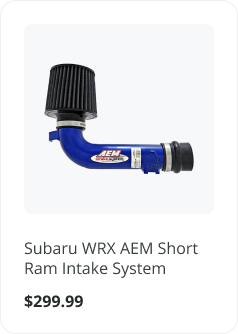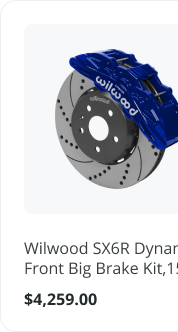2016 Sales Tax Changes – Webinar with Avalara

Nothing is certain but death and taxes – but
you can be certain that sales taxes will change
For most online merchants, collecting sales taxes is a fundamental part of doing business. And while sales taxes may be different in every single jurisdiction, what they have in common is a tendency to change. Lawmakers love tinkering with sales taxes, and this year is no exception.
In 2016, three different bills dealing with remote sales tax on the federal level could mean big changes for online sellers. Meanwhile, many new state laws went into effect Jan. 1 and more are on the way. These changes have very real repercussions for online sellers. It’s imperative to be aware of them in order to take the right steps to be compliant.
We’re here to help with a roundup of the major changes in sales taxes that are in the works in 2016. Here are some highlights:
Federal legislators try and try again
to regulate remote sales taxes
The push to level the field between brick-and-mortar stores and ecommerce continues, and there’s a high chance that Congress will eventually institute rules on remote sales. Three major bills dealing with collecting sales taxes on interstate purchases have been submitted or are in draft form.
Marketplace Fairness Act of 2015 (MFA)
The newly revised Marketplace Fairness Act bill is similar to a 2013 proposal. Essentially, it broadens states’ authority (should they meet certain criteria) to require remote sellers to collect sales tax, regardless of whether that business has a physical presence within those states. The sales tax rate is based on the location where the buyer receives the product or service.
The legislation only impacts those out-of-state or remote sellers with more than $1 million in gross annual sales, which are not currently collecting sales tax, and which are selling into states that are members of the Streamlined Sales Tax (SST) initiative or have instituted tax code streamlining efforts. Learn more here.
Remote Transactions Parity Act of 2015 (RTPA)
The Remote Transactions Parity Act of 2015 bill is similar to the MFA in that it would allow states that are SST members or have implemented simplification requirements to require remote sellers to collect and remit sales tax.
However, the RTPA includes a phase-in period for compliance for small businesses, with an exemption for small businesses under $10 million in gross receipts in the first year, an exemption for small businesses under $5 million in the second year, and an exemption for small businesses under $1 million in the third year. The bill also provides an exemption for catalog-only sellers that do not engage in any online sales. Learn more here.
Online Sales Simplification Act (OSSA)
SSA is quite different from the MFA 2015 and the RTPA. Under OSSA, remote sales taxes are origin-sourced (based on the location of the seller instead of the purchaser). Sellers pay the collected taxes to their states, which remit the funds to customers’ states. In states with no sales tax, sellers would charge a flat rate on remote sales. States that opt to not participate in this method would be prohibited from imposing sales tax on remote sales. Unlike the other measures, RTPA does not provide for a small seller exception.
Alabama throws down the gauntlet
In a major development that went into effect Jan. 1, Alabama now requires out-of-state sellers that make retail sales of tangible personal property into Alabama of more than $250,000 a year and conduct certain activities to register for a license and collect and remit sales and use tax.
The new rule applies even if they don’t have a physical presence in the state, going against the Supreme Court’s ruling in Quill Corp v. North Dakota requiring collection of sales and use tax only by companies that have a physical presence in a state. It’s possible that Amazon.com or other large ecommerce companies could go to court to challenge the new law, ultimately raising the issue before the Supreme Court once more. Learn more here.
Growing crowd of click-through nexus states
Meanwhile, Washington State, Nevada, Vermont and Michigan last fall joined 13 other states with “click-through nexus” laws. That means that websites in those states receiving compensation for referrals are considered to have a presence substantial enough to trigger nexus for sales and use tax. The law in Washington provides an exception for businesses with less than $10,000 in referred sales from the prior year.
Going once, going twice!
Online auctions may have to collect sales tax in NY
In New York State, a proposal would require online auction sites to collect sales tax and report in lieu of the actual sellers, just as brick-and-mortar auctioneers do. The proposed rules define a “marketplace provider” as a vendor who collects the purchase price, as well as performs other specific functions such as providing the physical or virtual forum where the transaction takes place.
Knowledge is power
These are only a few examples of the many changes in sales tax taking place at the state level. Are you prepared for the effect these new rules could have on your compliance and your business?
Learn more about both federal and state changes at our upcoming webinar,The Online Seller’s Guide to 2016 Sales Tax Changes.
DATE: Thursday, March 17, 2016
TIME: 1:00 p.m. Eastern (10:00 a.m. Pacific)
About the speaker

Scott Peterson is the Director of Government Affairs for Avalara, Inc. Avalara is the industry leader in providing sales tax automation to small and medium sized business. In his role, Scott leads Avalara’s effort to be the first name in sales tax automation. Prior to joining Avalara Scott was the first Executive Director of the Streamlined Sales Tax Governing Board. And before joining Streamline Scott spent ten years as the Director of the South Dakota Sales Tax Division

Maria is a marketing manager at X-Cart. Once captured by digital and content marketing in her student days, she keeps living and breathing it ever since.







